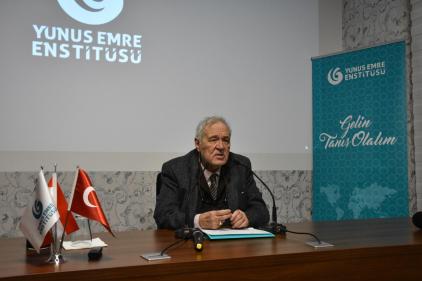"Turkey from Tanzimat to Republic" with İlber Ortaylı
Historian Prof. Dr. İlber Ortaylı has given a lecture at the conference entitled "Turkey from Tanzimat to Republic," organized by Yunus Emre Institute's Vienna Branch in Vienna, the capital of Austria.
The program was hosted by Yunus Emre Institute's Vienna Branch and Ortaylı indicated that certain mechanisms that failed to function as smoothly as in the past in the Ottoman Empire were made functioning again with the reforms of the Tanzimat (legislative remodeling of Turkish administrative methods) era, noting that Turks were quicker to see the change than other nations in the Muslim world.
Ortaylı pointed out that the Ottoman Empire attached greater importance to loyalty than consanguinity and there were many non-Muslims who were appointed as ambassadors and undersecretaries of foreign office during the Tanzimat era.
Role Of Turks In Muslim World
Ortaylı explained that Turks found Arabic counterparts of certain terms in medicine, economics, etc., coming from the Western world during the Tanzimat era, noting that although such words as "cumhuriyet" (republic) and "iktisad" (economics) had been derived from Arabic, they should be regarded as Turkish words as they had been coined by Turks.
Tanzimat changed the fate of Turks."
Ortaylı maintained that major reforms introduced with the Tanzimat Edict such reforms related to taxes and property rights changed Turkey's fate considerably as this helped to set Turkey away from the ranks of the Oriental states.
Ortaylı stated that the most important reform of the Tanzimat era was the introduction of free education. "This was not the case even for Europe. At that time, only the Ottoman Empire provided free education," he said.
Pointing out that the printing press started to be used during the Tanzimat era, Ortaylı added that scholarship in education became widespread and women started to work as teachers for the first time in this era.






